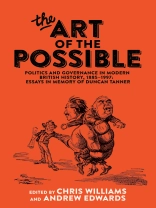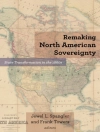This volume explores some of the major transitions, opportunities and false dawns of modern British political history. It engages with the scholarly legacy of Professor Duncan Tanner (1958–2010) whose work was focused on the political process and on politics in government. Chronologically its span runs from the first general election to be conducted under the terms of the Third Reform Act through to the 1997 referenda in favour of devolved assemblies in Scotland and Wales. This was the period in which British politicians most obviously addressed a mass, British-wide electorate, seeking national approval for policies and programmes to be enacted on a UK-wide basis. Aimed at scholars and students of modern British history this volume will also interest the general reader who wishes to get to grips with some of the latest thinking about British politics.
Inhoudsopgave
Introduction: Duncan Tanner and the art of the possible – Chris Williams
1. The making and remaking of ‘common sense’ about British economic policy – Peter Clarke
2. The ‘big state’ versus the ‘Big Society’ in twentieth-century Britain – Pat Thane
3. ‘One meaning blots out another’? Liberals and Labour in the east midlands coalfield – David Howell
4. Cartooning the rise of Labour, 1900–21 – Chris Williams
5. Novels for ‘thinking people’: fiction and the inter-war broad left – Steven Fielding
6. Myth and counter-myth in Second World War British politics – Andrew Thorpe
7. Labour, nationalism and the problem of Welsh devolution, c.1939–64 – Andrew Edwards
8. Defending the constitution: the Conservative party and the idea of devolution, 1945–74 – Matthew Cragoe
9. Public and private languages of ‘class’ in the Luton by-election of 1963 – Jon Lawrence
10. Community and the Labour left in 1970s London – John Davis
11. Labour, the Union and the rebirth of Welsh devolution – Mari Elin Wiliam
Duncan Tanner: a select bibliography – Chris Williams
Index
Over de auteur
Andrew Edwards is Lecturer in Modern British History at University of Wales, Bangor and Co-Director of the Welsh Institute for Social and Cultural Affairs












